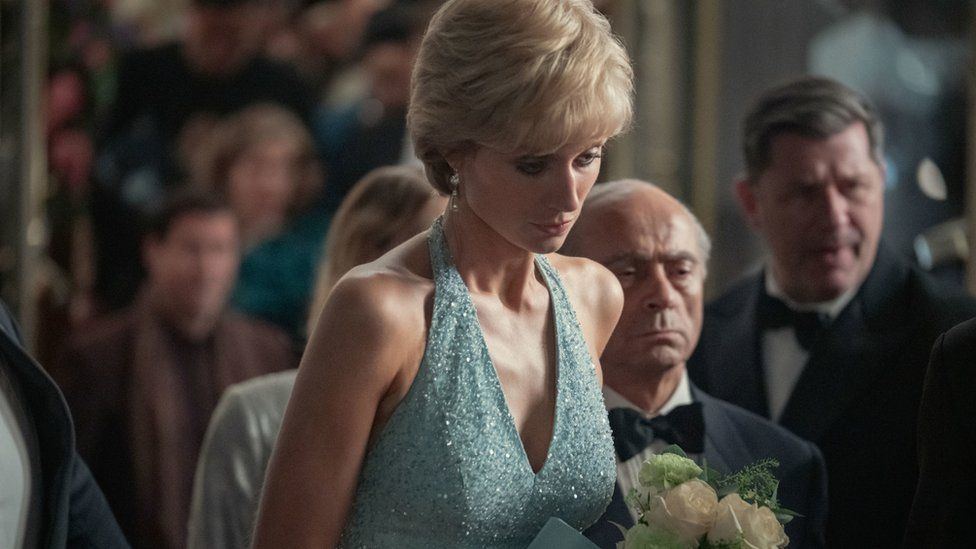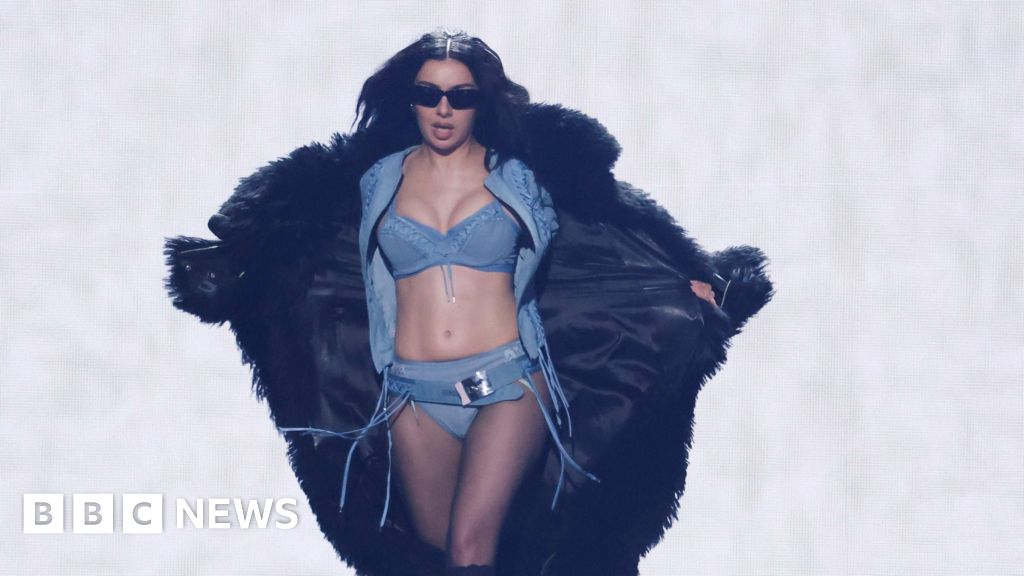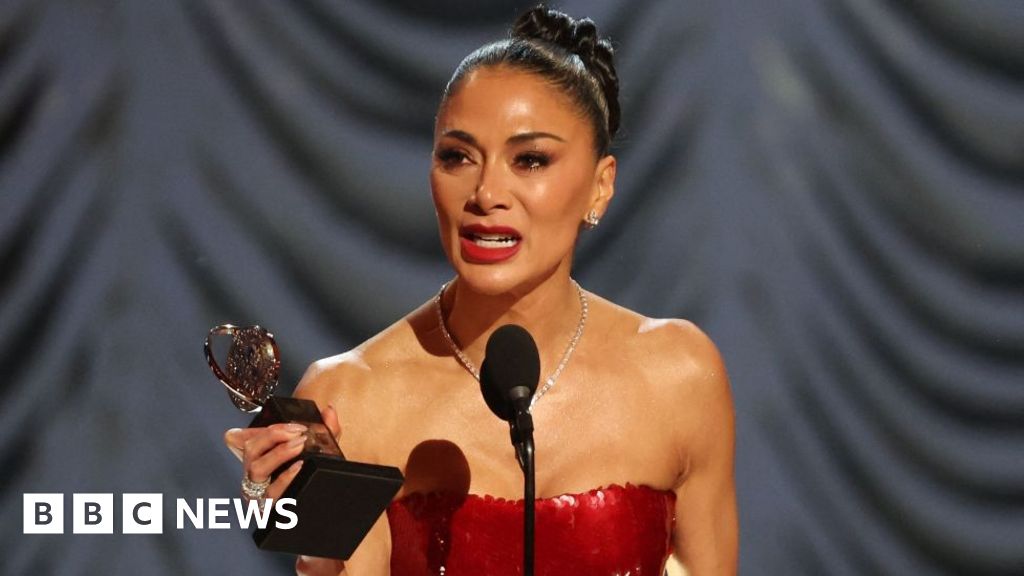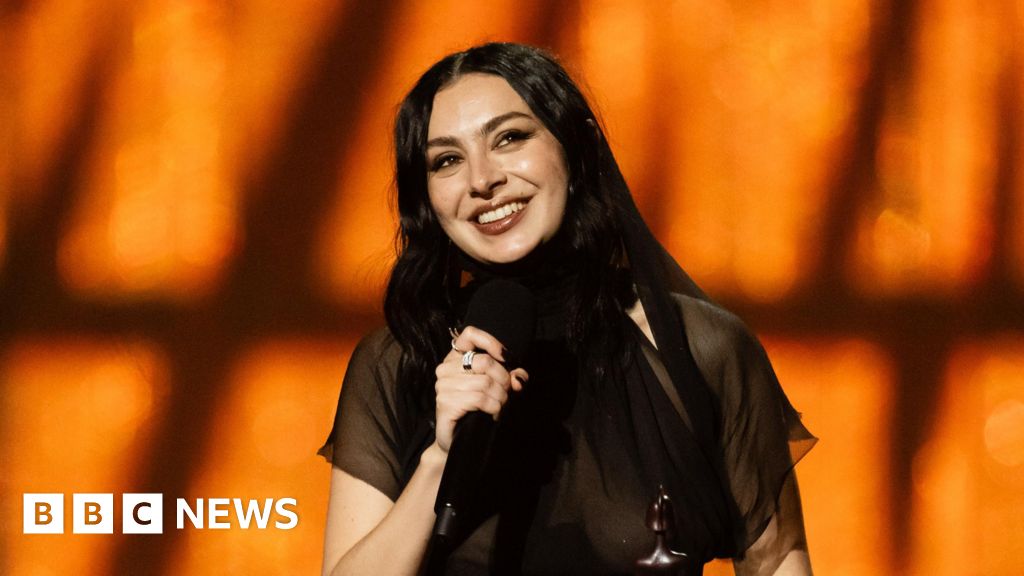ARTICLE AD BOX
 Image source, Netflix
Image source, Netflix
Elizabeth Debicki appears as Princess Diana in the next series of The Crown
By Sean Coughlan and Daniel Rosney
BBC News
Younger audiences, with no first-hand memories of the 1990s, are likely to have their views on the monarchy "heavily influenced" by The Crown's TV dramatisation of the era, says a royal expert.
"I think it's very likely that these Netflix films will be taken as a quasi-documentary," says Professor Pauline Maclaran of the Centre for the Study of the Modern Monarchy at Royal Holloway, University of London.
"We already know that the royals are much less popular with this generation," says Prof Maclaran.
And she doesn't expect the new series, covering the troubled relationship between Princess Diana and the then Prince Charles, to generate much more sympathy for the monarchy among the young.
"They are likely to understand Diana as the victim of Charles's treatment of her," says the royal author.
While there are debates about fact-checking, she says the real impact of such a TV show is its emotional message, particularly when it's filtered through social media.
It has elements of an upmarket soap - a Coronation Street with coronations - and it's the drama of human relationships which will connect with audiences, drowning out any warnings about historical accuracy.
For young Gen Z viewers, Prof Maclaran expects Diana to emerge as their "cultural icon", identifying with her personal struggles, her championing of causes and her challenging of starchy institutions. She is a social media meme for the marginalised.
The story of Diana, portrayed by Elizabeth Debicki, will be the narrative that dominates, appealing to a young audience with no memory of her when she was alive.
"These media representations can be very powerful," says Prof Maclaran.
Young people also seem more ready to accept the authenticity of The Crown's version. A survey from YouGov showed that 18 to 24-year-olds were three times more likely than over-65s to expect that the new series of The Crown would be "mostly accurate".
Image source, Netflix
Image caption,Imelda Staunton as the Queen and Jonathan Pryce as Prince Philip in The Crown's view of the 1990s
Netflix describes the royal series as "fictional dramatisation, imagining what could have happened behind closed doors".
And Prof Maclaran says the monarchy has previously benefited from such an approach, including the 2006 movie The Queen, starring Helen Mirren and also written by Crown creator Peter Morgan.
With its mixture of tweedy understatement and strong feelings, it showed Queen Elizabeth having to adjust to changed times, filling in the unspoken gaps, in a way that humanised the Royal Family.
"The Queen's image really benefited from The Queen. It gave her an emotional side that people hadn't seen," says Prof Maclaran.
But she expects the next series of The Crown to leave a much more mixed impression of the monarchy, particularly for younger viewers.
'It's changed my opinion of him as a King
Image source, Linzi Cormack
Image caption,Linzi's interest in the royals has increased because of The Crown, but her sympathy is with Princess Diana
The Netflix series doubles as a history lesson for Linzi Cormack.
"When all this happened, I was a little kid," the 29-year-old explains. "Watching it really opened up my eyes to the whole Royal Family and everything that happened."
The 29-year-old from Stockton-on-Tees says she believes how the royals are portrayed on screen is exactly what would have happened behind palace gates.
She admits it's given her new-found respect for Queen Elizabeth.
"If I'm honest, it's changed my opinion of the Royal Family, it's made me interested for a start," she says.
The previous series has made her feel much more negative about King Charles.
"It's changed my opinion of him as a King and I don't think Camilla should have ever been a Queen.
"I think what they did to Princess Diana was horrible considering how loved she was."
Princess Diana is the only reason Louise Wilson watches The Crown. The 25-year-old from Dumfries and Galloway in Scotland admits that she sometimes forgets the series is fiction.
She didn't watch the first three series, but began when Diana was introduced by Emma Corrin in 2020 because "she just seemed like a normal person".
It's also changed her view of the then Prince Charles and Camilla. "I didn't really like them before I watched it, but then I understood they were meant to be together."
Tori from the US says she didn't know anything about the British royal family until watching The Crown
But for 29-year-old Tori Cooper, from Texas in the US, a lot of the on-screen dramatisation is new information and she can't wait to watch series five.
"I didn't know that Charles knew Camilla before he knew Diana, and that was interesting to see the phone calls they were having, and how he loves Camilla the entire time," she tells BBC News, outside Buckingham Palace.
"Sometimes I think it's 100% real," she says, admitting to sometimes treating it as a documentary. "But I'm sure they take some liberties on a lot of things."
Image source, Peter Summers
Image caption,Surveys suggest that younger viewers are more likely to assume that The Crown is an accurate account
There is an unmistakably wide generational divide in attitudes towards the monarchy.
Surveys from YouGov last month showed:
- 30% of 18-24 year olds believe the monarchy is "good for Britain"; compared with 73% for over-65s
- 45% of 18-24 year olds believe Charles will be make a good job of being King; for over-65s it's 83%
Royal historian Ed Owens believes this to be part of a much wider scepticism towards institutions, not just the monarchy.
"There's a sense of disenchantment among younger people about how society and politics works at the moment. The monarchy is an institution that embodies the political establishment, people see it as part of an outdated system that doesn't work for them," he says.
If the young are less enthusiastic about the monarchy, history professor Heather Jones of University College London says this is alongside a lack of a clear distinction about how the royals are depicted.
Image source, Netflix
Image caption,Sir John Major, played by Jonny Lee Miller, has accused the new series of including "nonsense"
She thinks the overall effect of The Crown on the young will be to "reinforce the mystique of the monarchy", rather than undermine it. But she is worried that an entertainment series, a piece of creative scriptwriting, will get mixed up with the historical record.
"There is a real gap in historical knowledge, so that younger people often do assume that what they're seeing in a historical drama is real," says Prof Jones.
She points to war films, such as 1917 and Dunkirk, as other examples where she has found a lack of recognition that these were "engaging, entertaining, fictionalised versions of history".
What raises even more ethical issues about The Crown, she says, is that many of the protagonists are still alive. It's not simply imagining the past, it's a dramatisation of people's lives who are very much still part of the present.
The closer the series has come to the present, the more problematic this becomes. This might be dramatised fiction but the losses and griefs are very real. The death of the central figure Queen Elizabeth is still very recent.
"The Crown was always at its strongest when it stayed closest to the historical events in an accurate way. When it veers off into very dramatic, invented territory, it weakens itself... it sensationalises events that are already sensational enough," says Prof Jones.
Buckingham Palace told the BBC it does not comment on The Crown.
Netflix has defended how the TV series has represented a "significant decade for the Royal Family - one that has already been scrutinised and well-documented by journalists, biographers and historians".
"The Crown has always been presented as a drama based on historical events," says Netflix.

 2 years ago
31
2 years ago
31








 English (US) ·
English (US) ·